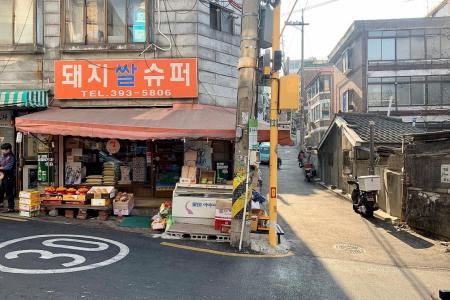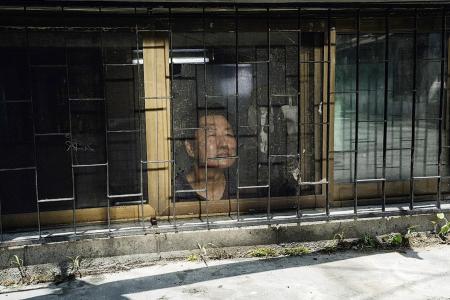Parasite an inequality tour of S. Korea
Resident of shanty town Ahyeon-dong says Oscar-winning movie 'made me feel like they put my life right in there'
SEOUL: From the houses to the noodles, South Korea's Oscar-winning movie Parasite tells the story of a suffocating class struggle through the sights and smells of Seoul.
Bong Joon-ho's film is a tale of two South Korean families - the wealthy Parks and the poor Kims - mirroring the disparities in Asia's fourth largest economy and striking a chord with global audiences.
The visual clues in Parasite resonated with many South Koreans who identify themselves as "dirt spoons", those born to low-income families who have all but given up on owning a decent house and social mobility, as opposed to "gold spoons" from better-off families.
The Parks' mansion and the Kims' squalid "sub-basement" apartment were inspired by and set in real neighbourhoods in Seoul.
A tour of the film's locations, props and backdrops reveals the unique meanings they have for many South Koreans.
Ahyeon-dong is one of the last shanty towns near downtown Seoul and was in several scenes depicting the Kims' humble neighbourhood.
Perched on a hillside near the main train station, Ahyeon-dong is a warren of steep, narrow streets, many of which end in long staircases that residents climb to go home.
"Watching the film made me feel like they put my life right in there," said Mr Lee Jeong-sik, the 77-year-old co-owner of Pig Rice Supermarket, which is featured in the film.
The fictional Kim family live in a "sub-basement", usually small, dark apartments built partially underground.
RENT INCREASED
Residents said rent for them had increased to around 400,000 won (S$470) a month, more than doubling in the past decade.
Ahyeon-dong sits in the shadow of newly-built apartment towers, and the city has faced protests from some residents who fear losing their homes to redevelopment.
When Mr Lee heard Parasite had won four Oscars, he was so happy he could not sleep. As media gathered outside his shop, he wondered whether the film's fame would change plans to eventually build new apartments there.
The scenes around the wealthy Parks' home - a movie set built elsewhere - were filmed in Seongbuk-dong, known as South Korea's Beverly Hills and home to many business families and diplomatic residences. The streets there are clear of rubbish and almost silent, with most homes hidden behind high walls, spiked fences and security cameras.
Said Peace Estate Agents chief executive Chung Han-sool: "Most of the houses have basements and they use it for home bars or mini theatres."
According to real estate brokers, homes there usually cost around 7 billion won. Those rented to foreign diplomats are offered for 10 to 15 million won a month.
"There are 48 ambassadors living in the neighbourhood, so there is a whole separate squad of police officers in the area," Chung said.
Even within Seongbuk-dong, the disparity is highlighted by the "gisasikdang" or "drivers' diners", similar to one featured in Parasite.
Gisasikdang sprung up to serve meals to drivers, including those ferrying the area's wealthy residents.
"There are taxi drivers, bus drivers and those who drive the CEOs who live around here," said Bae Sun-young, a manager at a gisasikdang. "The wealth is so polarised here. It's extreme."
As news of the Oscar wins spread, South Korean social media burst with photos and recipes of jjapaguri, a combination of two different instant noodles translated in the movie as "ram-dong" (ramen plus udong).
Standing in the cramped aisles of Pig Rice Supermarket, Lee noted that the residents' economic status was reflected in what they bought.
"People are not well off here," he said. "What they buy most is ramen and alcohol." - REUTERS
Get The New Paper on your phone with the free TNP app. Download from the Apple App Store or Google Play Store now




